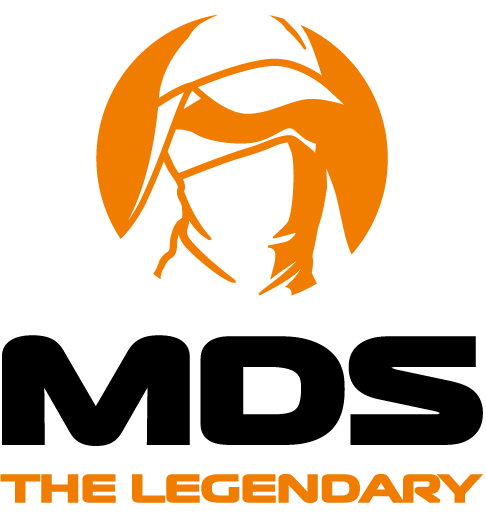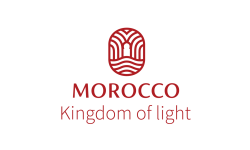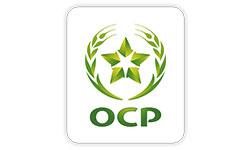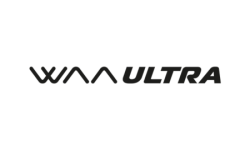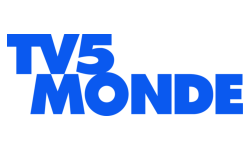Tips and Advices

THE MARATHON DES SABLES IS ALL ABOUT MANAGEMENT…
For one week everyone must manage their own strength, food and water needs. “A PLANNED RACE IS A SUCCESSFUL ONE”. Especially in Southern Morocco at a time of year when the temperature can exceed 100 degrees Farhenheit in the sun. Due to the nature of the terrain crossed throughout the race, the body is under strain, and thanks to the experience acquired by doctors over previous years, we can advise you on how to avoid certain mistakes and how to prepare efficiently for this “extraordinary expedition”.
FOOD
WATER
EQUIPMENT
TRAINING ADVICE
FOOD
Bring enough food for all meals, from breakfast on the first stage up to lunch on the last stage, which will be the last self-sufficient meal. Freeze-dried food is recommended. Add water and it's ready to eat. Carefully calculate your calories: 3000 - 4000 are necessary daily (varying between individuals).This plus energy bars should be the basis of your nourishment...
The self sufficiency begins from breakfast 1st stage.
Select your food carefully.
Once again, weight is a major consideration.There are now numerous food products which are vacuum packed or freeze dried and their small volume and weight make them ideal solutions for this kind of undertaking. When planning your meals you must include a solid breakfast and high energy snacks every 20 to 30 minutes during the race. The evening meal should, of course, replace all the calories lost during the day.
How to plan nutritious and balanced meals ? Know the fundamental food groups:
Proteins: generally stored in muscles (46 % of the proteins in the body) 15 % of your total caloric intake should be made of animal and vegetal proteins to maintain the nitrogen balance in the body.
Fats: fatty tissues store fats. Body reserves are usually 13 % of the total body mass. Daily requirements in fat are about 30 % of the total caloric intake.
Carbohydrates: your main requirement is glucose, which is "the muscles' preferred fuel during sustained activity". Daily needs represent 55 % of the total caloric intake.
There are two carbohydrate groups:
• sugar which is rapidly assimilated by the body after absorption,
• sugar which is slow burning, found for example in pasta, bread, potatoes or rice which are stored by the body to be used as needed.
In addition to the above any balanced diet should include a lot of water (1 to 1.5 ml of water per calorie ingested).
During the MARATHON DES SABLES a daily intake of 3 000 to 4 000 calories is required to compensate daily losses due to physical effort. With a diet composed of 15% proteins, 30% fats and 55 % carbohydrates (with at least half of those slow burning carbohydrates), water consumptiom should be between 6 and 7 liters per day.
You will need to add electrolytes and vitamins to the water; food should be salted correctly and potassium, calcium, phosphorus, magnesium, vitamin C, B1, B2, PP, supplements are indispensable.
Pratical suggestions:
Outside of meals taken before and after the race, dried fruit and nuts, fruit gel, chocolate bars or high energy bars are perfect snacks during the race. Drinking water given out in the morning and at check points is indispensable to restore water losses.
WATER
162 000 litres of water are consumed during the event. AOI will distribute some water per day to each competitor, at departure, check-points and arrival, see Art. 16.
You must manage your water from the starting line of one stage to the starting line of the next stage. The morning meal will be taken with water from the previous day. «NON-STOP» stage ; at some CPs you can choose between 1.5 or 3 litres. If you take 1.5 litres instead of the 3 litres available, you will not recover it at the finish line.
However, everyone will receive 6 litres of water at the bivouac. Reminder: the water distributed to you will carry your official competition number and it is forbidden to discard empty bottles on the track. Either exchange the empty bottle for a full one at the control post or discard it at the
control post or discard it at the control post after having filled your water carriers.
EQUIPMENT
our equipment may quickly become an terrible handicap!
When you have to be self-sufficient for all your food and water needs, everything you carry must be carefully weighed so that you aren't carrying anything ill adapted to your own physical performance. The backpack: check that the frame will not cause injury to your back or shoulders because of frequent rubbing.
STOVE
You are advised to have a heating stove with alcohol tablets. Don’t forget spares or you’ll be eating cold. For security reasons gas cannisters are forbidden.
Watch out for strict checks by airport security personnel.
SLEEPING BAG
This is an obligatory item; competitors without one will be penalized. Even the warm-blooded, after using a lot of calories need a sleeping bag for insulation against the cold of the night and for full recuperation. Our definition of a sleeping bag is very wide and ranges from an ordinary camping bag to a high quality mountain bag. The decision is yours, bearing in mind both weight and warmth.
BACKPACK
You alone must look after your backpack and its contents. Do not leave it lying around; think of penalties incurred in case of disappearances... See Art. 7, 24, 27 and 28.
Note: Some brands of rucksack declare that their bag is suitable or even recommended for the MDS. This is not true, as these bags can hamper the correct positioning of the runner number. It is important to check that the straps and/or the ventral pack are compatible with this specific rule.
NUMBER
The AOI requires that numbers worn on chest be placed centrally and on the upper portion of the torso. Please keep this requirement in mind when choosing your bag. (See drawings above, opposite, upside down—what have you). The AOI strongly emphasizes the fact that all backpacks are not suitable with regard to this rule.
This also means that participants must make sure they consider this rule when allowing for advertising space and plan accordingly. With the exception of the few square centimetres covered by the number (l=16 x h=18), participants may display their sponsors’ insignia as they please, so long as this display is not excessive.
The number must be legible in its entirety: it mustn’t be folded or covered up with a false number, turban, headscarf, jacket, etc.
It is forbidden to physically alter it in any way. The straps must be fastened underneath.
Failure on the part of the participant to respect the proper wearing of the number (i.e. decrease its size by folding it, cutting it, obstructing its visibility, etc.) or failure to respect the proper placement of the number (on the chest and rucksack) can result in the disqualification from the race. Falsification of the number (changing the number, adding text) will lead to immediate disqualification.
CLOTHING
Clothes are important too!
You must cover your head to avoid sunstroke and heat exhaustion. The most suitable clothing is made of loose fitting cotton. Cotton allows air circulation, avoids chafing and water loss through perspiration. As to your feet, there is nothing better than training before the race to ensure the good condition of your feet during the race. They will carry you throughout the race if you take good care of them. During the race they will be subject to constant friction and blister treatment at night is the “daily routine” of the medical team.
Desert nights are cold. A sweat-shirt and track-suit bottoms will be welcome. You will no doubt be moving around during the night of the NON-STOP stage.
LUGGAGE
You will need a backpack for the race and a lockable travelling bag (or suitcase) for your personal effects before and after the race. Remember to bring clothes for the flight and the dinner!
Total weight of the two bags : maximum 20 kg.
The luggage containing your personal effects will be given to AOI on the 2nd day during the administrative, technical and medical checks. It will only be returned to you after arrival at the final finishing line. After the first night of camping, you will be in a better position to evaluate your needs. You will be aware of the daytime and night-time temperatures and will have had advice from the «old hands» so that you can make a last adjustment if necessary.
Therefore, you will be able to reduce or increase the weight of your backpack before handing your luggage over…
BIVOUAC
Competitors will be accommodated in numbered tents attributed by the registration office. Competitors must, without fail, choose their tent from within the space reserved for their registration country. These are portable 8-man tents with groundsheets. Groundsheets will cover the whole of the ground surface area, which will allow 8 people to be accommodated in each tent. Tent numbers will be attributed (by amicable agreement) during the checks on 07 april in Morocco.
Any change of place must be authorised by the AOI manager in charge of the bivouac. This system is set up to avoid certain competitors searching desperately for a “bed” when returning “a little tired”... Bin bags will be put up in your bivouac. We rely on each competitor to assist us in keeping the desert clean.
TELECOMMUNICATIONS
Throughout the competition, it will be possible to make emergency calls using the IP telephones set up each evening at the bivouac. Please bring cash or a credit card with you. Cost of call : 2€/minute in 5 or 10 min cards.
WORTH KNOWING
Gaiters may be very useful in the sand; but they have to be carried and this adds to the weight... All too few competitors go to the chiropodist to prepare their feet, a mistake that many regret afterwards... Shoes two sizes larger and with a wider fitting at toe level will be more comfortable when your feet swell due to the heat ... or plasters !
No ointment or greasy products on areas that rub (between thighs, calves ...).
The sand dust soon makes it like sandpaper .... Ouch !
Although not compulsory, a tetanus vaccine will protect you against serious infections due to thorn pricks.
Pack and unpack your rucksack a number of times in advance until you know exactly where everything goes.
A waist bag combined with a rucksack will help balance the load. Gradually get used to long outings by alternating endurance racing and walking fast.
Before leaving you will have to check that:
• your vaccinations are current: tetanus and polio are still rampant in the area, so check your shots before leaving.
• you must have a medical check up done by a specialist in sports medecine to make sure that there is no condition preventing your participation in the race.
Keep in mind that throughout the race the medical team is there for your safety. Throughout the course of the race they will be there at each check point and at the night camp. Do not hesitate to consult them. A small health problem treated in time will not turn into anything serious that could stop you from pursuing the magnificent MARATHON DES SABLES adventure.
TRAINING ADVICE
Physical preparation for the MARATHON DES SABLES, long distance free style race, should start at least six months before the event.
Each participant should adapt his/her training program to his or her goal: finish among the first or simply finish the race. Train progressively: for the long distance runner, weekly runs should average one hundred to 125 miles. For more modest objectives, the goal should be 30 or 50 miles weekly. Increase your mileage progressively. We advise you to train with a backpack from time to time, with a backpack weighing 3 - 10 kg, also increasing the weight gradually, so that you get adjusted to running while bearing weight. It is vital to drink during your training sessions ! Do not wait until you’re in the middle of the desert to get used to drinking, you must drink what you need when you need it. Do not forget that training is the best way to improve your chances and your endurance. Long runs allow you to test energy foods and drinks. If you have never run or if you are not used to training at least three times a week for several months, it is not reasonable to consider entering the MARATHON DES SABLES.
2025
39th EDITION - 4 - 14 April 2025
250KM IN 6 STAGES
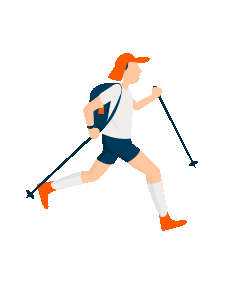
THE MARATHON DES SABLES IS ALL ABOUT MANAGEMENT…
Edition 2025
39th EDITION - 4 - 14 April 2025
250KM IN 6 STAGES
Newsletter
Join our newsletter and receive all the news of the MARATHON DES SABLES.
Join the newsletterNewsletter
Join our newsletter and receive all the news of the MARATHON DES SABLES.

